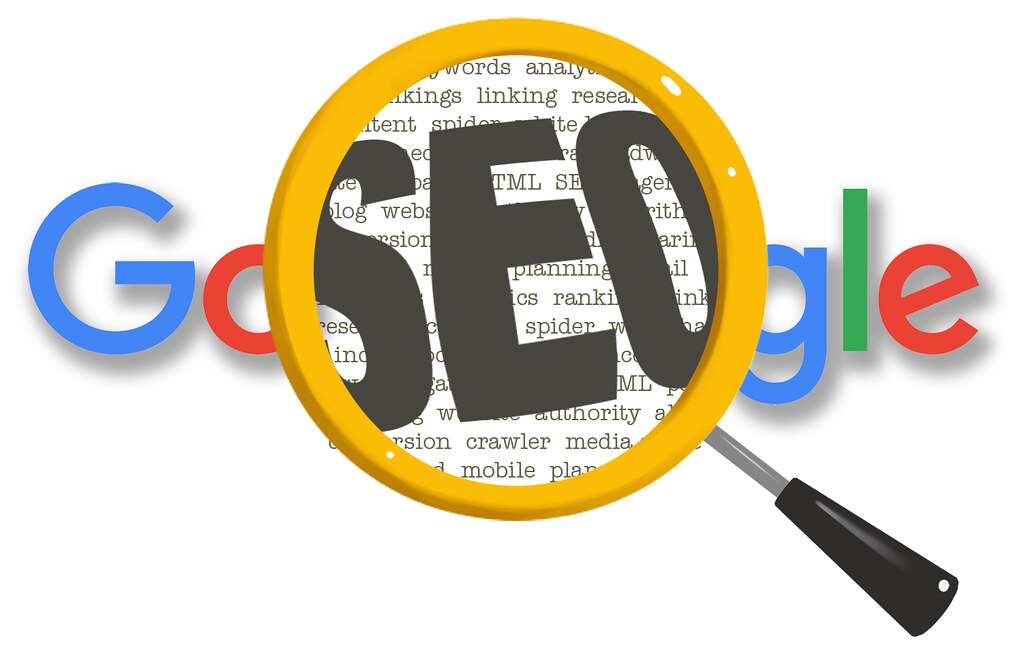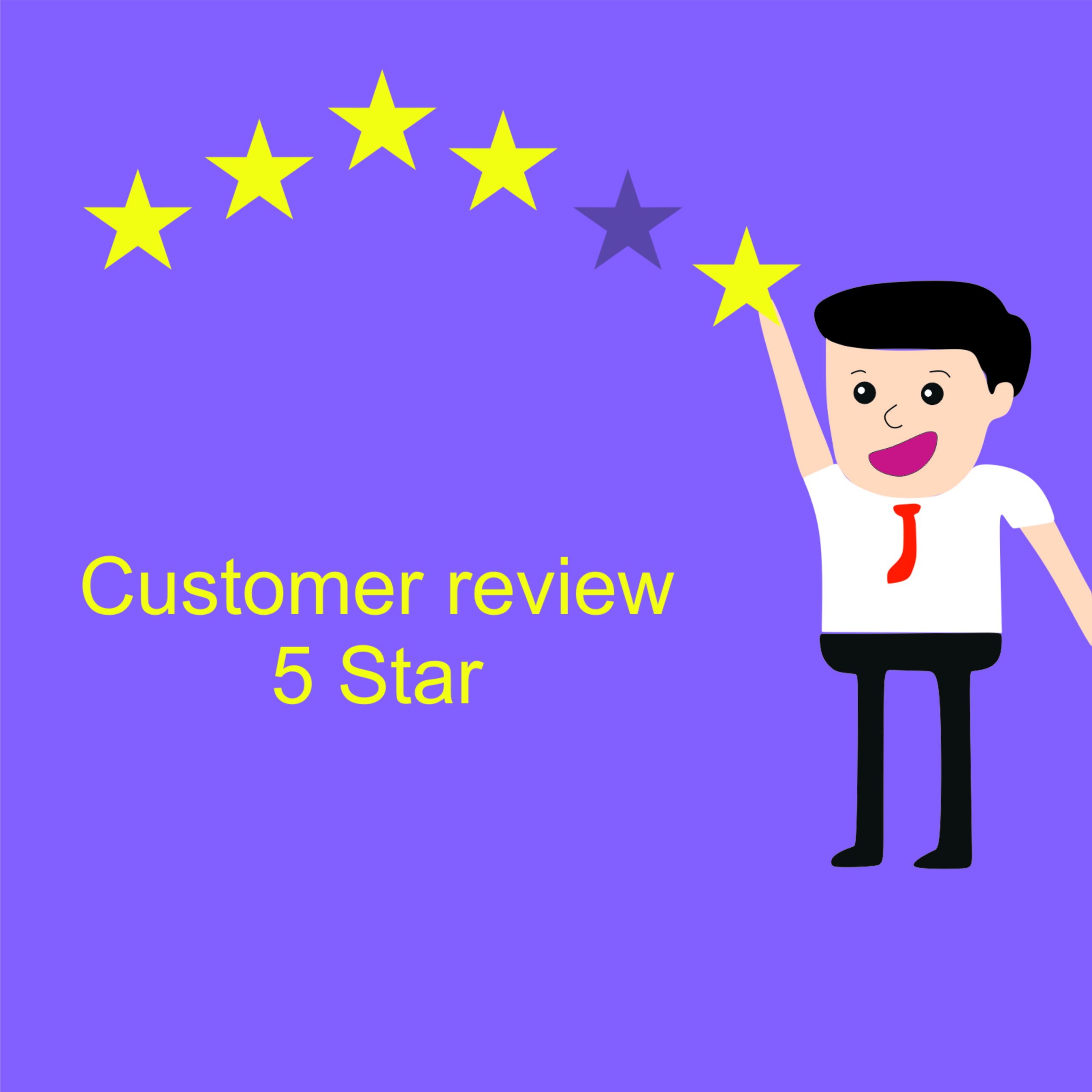Your business must adopt the best marketing strategies to stay ahead of the competition. Here we discuss the seven best marketing strategies for small businesses that fuel brand growth.
Are you looking for the best marketing strategies to grow your business? You need to start thinking about developing a strategy that puts your small business in the same league as your competitors who have been in the business for a long time. Reaching potential customers is all about connecting with them at places where they spend the most amount of time. Did you know that 97% of people use the Internet to research local businesses?

But it isn’t easy to mark your presence in the digital landscape. It is easy to get overwhelmed by the sheer amount of background work that needs to be done simply to catch your potential customer’s attention. Defining your target audience, promoting your services, and getting the word out – there is a lot that needs to be done.
And that’s not all! You also need to think of a marketing strategy! At times you may equate it to learning a foreign language which can be overwhelming.
There’s nothing to worry about. If a reliable digital marketing agency is strategizing for your business, you can fast-track brand awareness and improve ROI within no time. In this article, we will be talking about a few small business marketing strategies that you need to be aware of.
Begin here is a quick look at some of the key points to remember about digital marketing.
- With the marketing strategy in place, you can optimize your online assets and easily promote your business.
- It’s important to develop your audience and use technology that improves the value proposition for your business.
- With the right strategy in place that is optimally using SEO, social media marketing, etc, you can improve brand awareness and earn conversions quickly.
Why is a Marketing Strategy Important for A Small Business?
We commonly hear stories of small businesses struggling to make a mark with their advertising efforts. It is indeed difficult to kickstart any notable marketing with a limited budget. It becomes even more difficult to run your business and maintain your advertising efforts at the same time. That’s one of the most common reasons why small businesses struggle to get noticed.

Fortunately, advertising isn’t the only way to reach your potential customers anymore. On average, a person sees over 10000 ads every day which is easily four times what they would see in the 80s. Since ads have become so intrusive over 250 million people now use adblockers. What does this mean? This means advertising alone cannot build a customer base. What is the alternative?
Digital marketing on the other hand can be well researched and planned and thus give consistent results over a period. If you can keep the wheels churning, digital marketing can work to your greatest advantage.
The reality is that less than 50% of small businesses have a smart digital marketing strategy in place. Moreover, small businesses often start with a limited marketing budget which limits their scope and reach.
When you have an effective marketing strategy in place, it helps increase brand awareness, generates leads, and turns potential customers into paying ones. It’s important to use the right digital tactics so that you can scale up your small business marketing efforts enough to compete with your competitors and earn more customers in your location.
Before you dive into marketing your small business you must lay a solid foundation. While you do so, consider the following things –
- Understand the difficulties and problems of your target audience so that your business can become the solution
- Build a USP that helps easily differentiate you from your competitors
- Set short-term goals that help focus your budget and resources
- Identify ways to convert current customers into brand advocates
- Use automation and free promotional tools wherever applicable
Best Marketing Strategies for Small Businesses
Before we list the best marketing strategies, you must first understand that there is no secret recipe to a successful digital marketing campaign. In the list below you will find some time-and-tested strategies that have helped small and mid-sized businesses earn high returns on investment and make quite a name for themselves. However, success in most cases is a result of many hits and misses. You may also have to wait and fail before succeeding. So here are the seven marketing strategies you need to explore.
# 1 Search Engine Optimization
Any discussion on digital marketing strategies cannot begin without mentioning search engine optimization or SEO. Market experts will readily agree that it is one of the most impactful marketing strategies for small businesses. So, what is SEO?

Search engine optimization is the process of organically boosting website ranking on search engines so that users can easily find your website. The equation here is quite simple – the higher the ranking on search engines, the more traffic will get directed to your website which will then mean lead generation and conversion. Since it is estimated that over 35% of traffic come from local sources (people in your neighborhood) if your website ranks better on search engines, you will see more customers.
Getting started with SEO is simple. In the beginning, you need to follow these steps –
- Create a Google My Business account
- Requests loyal customers to post reviews
- Optimize the website with relevant local keywords
- Create and post blogs regularly
- Use location pages, and
- Focus on building backlinks
While SEO in itself isn’t complicated – it is a long-drawn investment. You will not see immediate results. Often you may have to wait for six to twelve months to get any traction. Small businesses often give up on SEO after a while because of slow the results come in. That’s the wrong approach of looking at SEO. Small businesses should make a small start. Begin your efforts by working on improving content and posting regularly.
#2 PPC Digital Advertising
If SEO is all about organically attracting potential customers to your website, PPC digital advertising is about displaying paid ads so that they can easily find you. PPC stands for pay-per-click and it is the form of advertising where you pay search engines to rank your website in the ‘paid results’ section whenever a potential lead searches for your targeting keywords.
You can begin by investing small amounts in PPC ads but you must be cautious as it can lead to an expensive bidding war. Fortunately, the competition in small geographical markets is often less which means that you can keep your PPC ad spending within a limited budget.
PPC advertising works well when you know how to make it work! Confused? Let us explain.
Firstly, you generate a list of best-performing keywords for your industry (within your local area). Then you create ads around these keywords or phrases. Advertising platforms (search engines) will use varying algorithmic equations to display your PPC ads based on factors such as landing page quality, keyword relevance, etc. Every time someone clicks on your ad, you pay the search engine (hence the name pay-per-click).
PPC can work wonders if you plan and intelligently optimize your keywords. Ideally, you should invest in PPC ads once you have established a strong brand message, strategy, and website.
#3 Email Marketing
No, email marketing isn’t dead even if you have read its millionth obituary! We can’t complete the list of best marketing strategies without targeting customers in their Inbox. There are more than 4 billion email users and more than 75% of marketers are reporting increased email engagement since the pandemic.
Though most other digital marketing strategies focus on generalized targeting of customers this is the only one that lets you build a personalized relationship with end users. It is the best remarketing tool as you can nurture your leads and take them through various stages of the sales funnel. Explore drip campaigns based on users’ interaction with your emails and help them make the purchase.
Email marketing is a low-cost marketing strategy which also makes it highly competitive. Hence you need a well-planned approach to this marketing strategy. Segment your audience for more targeted and personalized campaigns. Work on your content and write a killer subject line to strike a perfect chord with the audience. Make your email design stand out with visible CTA elements. Use a marketing automation tool to send emails to the right people at the right time.
A word of caution – AVOID SPAMMING INBOXES!
#4 Social Media Marketing
When you are looking to reach a larger audience and target customers who may not be in your target group, turn to social media marketing. Of all the strategies that list here, it has the maximum potential to increase brand awareness and drive your branding goals. While social media marketing may not offer you the same conversion rates as PPC or Email Marketing, it does amplify your marketing campaign.
![]()
More than 58% of the global population uses social media. This percentage is high among Gen Y and Gen Z who are the largest consumer group in the world. An average user spending close to 3 hours on social media every day and this offers your small business the perfect opportunity to reach out, engage and turn potential customers into paying customers.
As a small business, you must build your presence on social media. While you may want to join every platform, this isn’t the best thing to do. You may end up spreading your resources thin and not engaging actively with your target audience on any platform. Each social media platform has its own set of users, and you must target those platforms where you are most likely to find your audience. If you can dedicate sufficient time, you can go all guns blazing on all the platforms.
Here’s a quick guide to using various social media platforms –
- Facebook – Post images and videos of products and services, and news stories to engage with your audience
- LinkedIn – Post your customer success stories and let your employees share their experiences of working with your brand
- Twitter – Share news and the latest updates on your products and answer queries. Share stories about your industry in general
- Pinterest – Post infographics, explainer images, visual content and e-books to be shared with other people
- YouTube – Post explainer videos, product tutorials, and troubleshooting videos to educate users on products and their use
- Instagram – Post breathtaking images of your products, services, and real-life use by your customers
BE ACTIVE. Social media marketing isn’t about posting content randomly. Create a post cycle and always respond to queries and complaints. Your customers expect you to be responsive and not doing so can hurt your reputation.
#5 Content Marketing
Talk of marketing strategies for small businesses and content marketing is low-hanging fruit. It is the act of marketing your business using high-quality content. It has two significant advantages – first, it helps you build a strong reputation among your target audience, and secondly, it improves your search engine rankings.
Content marketing is a long-term strategy and one that you must stay invested in. Publishing a few blogs isn’t likely to earn you the dividends you are looking for.
You need a well-crafted strategy. The aim here is to add value to your readers with the content and solve their problems. The content you create must educate them, resolve their queries, and above all encourage them to buy your products and services. You need to create the perfect mix of content for your campaign that includes –
- Blogs
- Infographics
- E-books
- Whitepapers
- Videos
- Podcasts
The quality of your content is non-negotiable, and you mustn’t sacrifice it for quantity. As a small or medium business owner, you have your expertise, and your blogs should highlight that expertise to your audience. Once they find value in your content, they are likely to be convinced about your products and services.
#6 Leverage Your Reviews and Ratings
When we talk about best marketing strategies one of the things least stated is the power of reviews and ratings. Positive reviews and ratings act as fuel for your business growth while negative ones have the potential to deliver a killer blow.

Your customers would trust the reviews and ratings more than what you claim about your products and services. Negative reviews can hurt your brand reputation and if your business is already suffering because of it, you need a well-organized strategy to improve your ratings and reviews. Here are some of the things you must do to attract positive reviews and ratings –
- Encourage customers to write reviews. Make it easy for them and share a link where they can write reviews
- Respond to negative comments about your products and walk the extra mile to solve genuine problems
- Share reviews on social media platforms as it encourages more users to write reviews about your brand
- Avoid generating paid reviews as search engines and online review platforms are way too smart and might ban you
- Thank customers for their reviews as this encourages them to write reviews for future purchases of your products
#7 Online Reputation Management
Once you build a fort, you must protect it. The same goes for your online reputation as well. Along with all the positive feedback and comments, your business is likely to attract negative ones too. A disgruntled customer or a malicious post can do more harm to your business than you can think of. Negative comments tend to overwhelm positive ones as new customers are always apprehensive before trying a new product or service. They take negative comments more at face value than positive ones.
Online reputation management is the art of managing what’s being said and written about your business. It requires a proactive approach rather than a reactive one. You need to constantly keep a tab on mentions about your brand in the web space and react to them. Segregate negative content into two categories – genuine and malicious ones. Solve the problem of a genuine disgruntled customer and as for the malicious ones bury such posts with positive content. For more on how to deal with online reputation management please refer to one of our earlier posts.
Final Thoughts
Does all that sound overwhelming? Don’t worry businesses that haven’t invested in digital marketing often look at it as a daunting challenge. However, it is the minimum you must do to keep your business ahead in the race in a digitally driven world.
Having an in-house digital marketing team under your payroll isn’t viable for small businesses. You can’t leave it on one guy in your team and expect them to have skills and expertise across all domains of digital marketing. That’s where hiring a full-stack boutique digital marketing agency can help.
Agencies like ours devise the best marketing strategies for your business and help you grow your online footprint and reputation. If you are unsure of leveraging the best digital marketing strategies, we can help. At Cyrusson Inc. we specialize in running marketing campaigns for small and medium businesses. From launching fresh campaigns to taking up existing campaigns, our team loves challenges and problem-solving.
Let Cyrusson put you up on the digital map. For free and no-obligation consultation contact us today.

